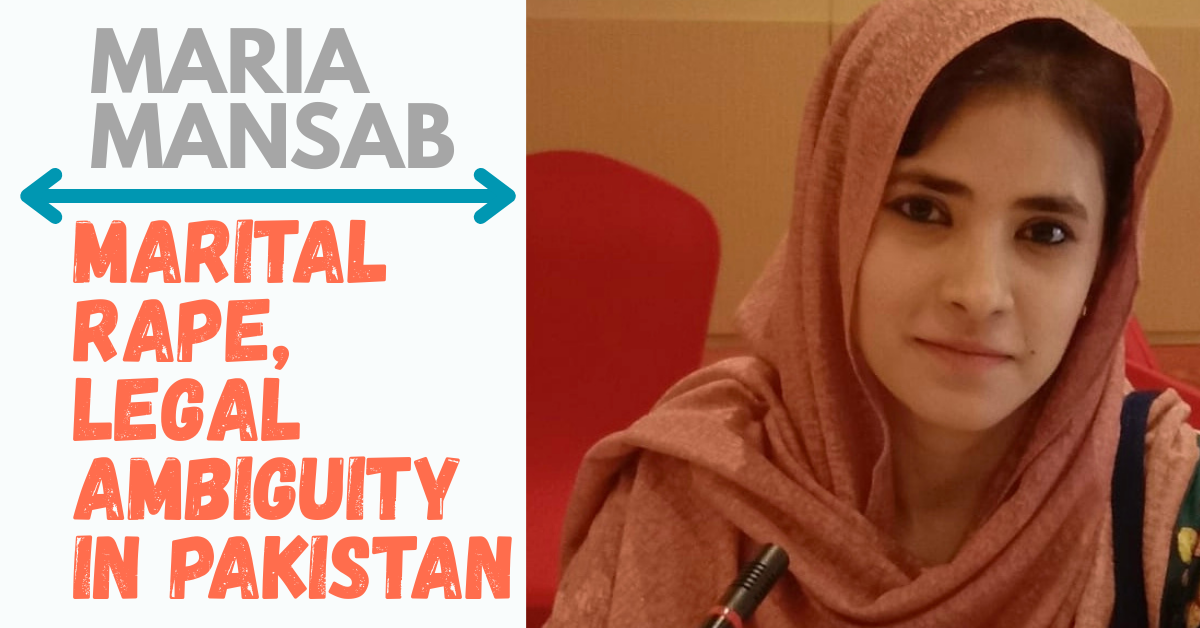In Pakistan, the institution of marriage is habitually used to validate silence, agony, and brutality. countless women suffer physical, sexual, and emotional abuse from their husbands, abuse that, in most instances, does not even have a name in the eyes of the law. The name is marital rape, and although the horror it describes is very real, its existence in Pakistan’s legal framework is still very blurry.
A recent case in Dera Ghazi Khan exposes the horrifying reality. A woman was mercilessly assaulted by her husband on the evening of May 17, 2025. He had forced sexual intercourse, sodomy, and when she resisted, he bit her, repeatedly hit her, and injured her intimate parts, severely damaging her internal organs. Her screams brought neighbors to her rescue, but the damage was already done.
This is not an isolated incident. A Karachi sessions court delivered a rare but historic verdict on January 15, 2024: a husband was found guilty and sentenced to three years in jail for rape and sodomy with his wife. The case was a breakthrough. For the first time, a Pakistani court acknowledged that sodomy in marriage is rape, a legal shift made possible after Section 375 of the Pakistan Penal Code (PPC) was amended in 2021 to broaden the definition of rape. Before September 2018, no single case of marital rape had ever been prosecuted in Pakistan.
In another alarming case, a 19-year-old Karachi woman, married in June 2025, was taken to a hospital in critical condition following a violent sexual assault by her husband just days into the marriage. She had fallen into a coma by early July, and medical reports confirmed severe sexual violence.
I encountered the same chilling stories of women during my Master’s thesis research on “Women’s Perception About Marital Rape in Pakistan”. One of the interviewees shared how her sister’s husband raped her continuously and insisted she be sexually available for his friends. When her sister complained to her family, they asked her to keep quiet to preserve their “honor.” No police report was filed. No legal action was taken. Merely silence, suffering, and survival, the story of too many women in this country.
Pakistan’s legal framework does address marital rape in Sections 375 and 376 of the Pakistan Penal Code (Act XLV of 1860), as amended by the Women’s Protection Act (2006). Recent amendments have slightly increased protection for women, but the legal position on marital rape remains unclear, untested, and largely unenforced.
This legal ambiguity takes a horrific toll on human lives. Women who seek justice are told that rape cannot occur within marriage. Police officers discourage filing FIRs. Families force women to stay quiet. Courts hesitate to confront social norms. The result? A culture of impunity for rapists who wear wedding rings.
Marital rape is not a cultural misinterpretation or a “private issue.” It is a violent offense. It disrespects a woman’s bodily autonomy, dignity, and constitutional rights under the Pakistan Constitution. The belief that consent is permanently given just because a marriage contract has been signed is deeply flawed and dangerous. Consent must be continuous, voluntary, and revocable, even in marriage.
There is no shortage of stories, only a shortage of justice. Pakistan must enact a definite law criminalizing marital rape and closing all legal loopholes. This should not be left to interpretation, provincial discretion, or social pressure. It must be a national law, prohibiting victim-shaming mechanisms, and backed by strict enforcement and public awareness campaigns.
Marriage should never be a license to rape.

